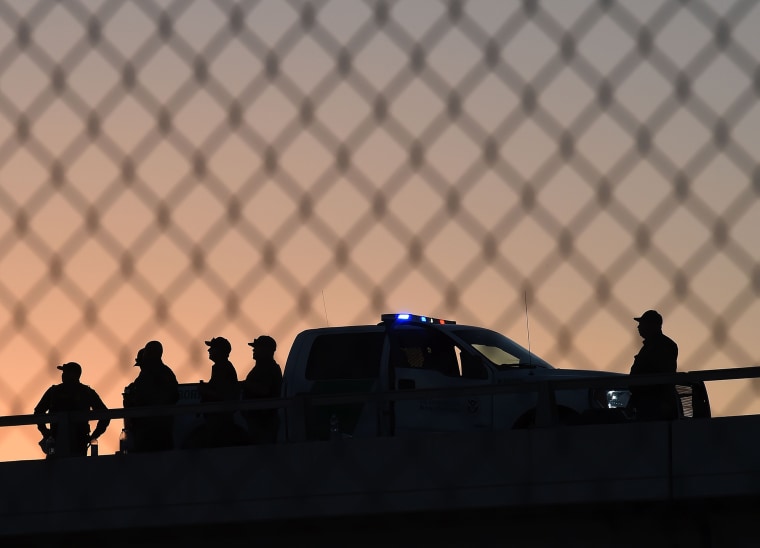Donald Trump will return to the campaign trail tonight, just three months removed from last fall's midterm elections, and roughly 20 months before his own re-election bid. The president is not, however, headed for a competitive battleground, but rather, is headlining an event in El Paso, Texas.
For Trump, the city in western Texas is of particular significance because its recent successes are, by the Republican's version of events, emblematic of a larger truth.
"The border city of El Paso, Texas used to have extremely high rates of violent crime -- one of the highest in the entire country, and considered one of our nation's most dangerous cities," the president argued in his State of the Union address. "Now, immediately upon its building, with a powerful barrier in place, El Paso is one of the safest cities in our country. Simply put: Walls work, and walls save lives."
The argument has a certain simplistic appeal: the border city was incredibly dangerous, then it got a wall, and now it's incredibly safe. Ergo, border walls are effective at improving security.
The problem, of course, is that Trump either has no idea what he's talking point or he assumes you're easily fooled.
According to law enforcement data, the city had low crime rates well before a border barrier was constructed between 2008 and mid-2009.Violent crime has been dropping in El Paso since its modern-day peak in 1993 and was at historic lows before a fence was authorized by Congress in 2006. Violent crime actually ticked up during the border fence's construction and after its completion, according to police data collected by the FBI.
As Trump lies go, this one stands out for a couple of reasons. First, it was carefully scripted. It's one thing when the president peddles nonsense because he got confused by something he saw on television, or because he cooked up some oddity in his overactive imagination. But in a State of the Union address, which the Republican read from his trusted teleprompter, the standards are supposed to be higher.
And yet, Trump's claims were brazenly untrue. At no point in recent memory was El Paso one of the nation's most dangerous cities, and at no point after it received border barriers did the city see a sharp drop in the crime rate.
Even local Republicans didn't appreciate the president lying so shamelessly about their community.
"The president is just wrong about the wall and wrong about El Paso," said Jon Barela, a lifelong Republican and chief executive of the Borderplex Alliance, an organization promoting economic development in a cross-border industrial hub with a combined population of more than 2.7 million, taking in the cities of El Paso, Ciudad Juárez and Las Cruces. [...]Dee Margo, the Republican mayor of El Paso, voiced similar criticism of Mr. Trump's description of El Paso, in his State of the Union address, as "one of the nation's most dangerous cities" before the barrier went up on the border.
Local officials approved a resolution earlier today, explaining that they are "disillusioned by President Trump's lies regarding the border and our community." Their resolution added, "Though it is difficult to welcome him to El Paso while he continues to proliferate such untruths, we do welcome him to meet with local officials to become properly informed about our great and safe region."
But even putting all of these relevant details aside, it's also important to appreciate the fact that Trump and his White House team had months to come up with a good example -- anywhere in the United States -- that would bolster his talking points.
They came up with one city -- El Paso -- and their argument has been exposed as a sham.
If Team Trump couldn't find any legitimate examples, it's probably because none exists.
